Related Research Articles

The 1888 United States presidential election was the 26th quadrennial presidential election, held on Tuesday, November 6, 1888. Republican nominee Benjamin Harrison, a former Senator from Indiana, defeated incumbent Democratic President Grover Cleveland of New York. It was the third of five U.S. presidential elections in which the winner did not win a plurality of the national popular vote.
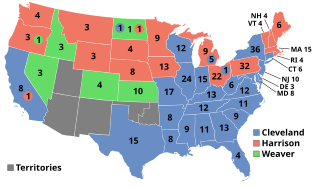
The 1892 United States presidential election was the 27th quadrennial presidential election, held on Tuesday, November 8, 1892. In a rematch of the closely contested 1888 presidential election, former Democratic President Grover Cleveland defeated incumbent Republican President Benjamin Harrison. Cleveland's victory made him the first and to date only person in American history to be elected to a non-consecutive second presidential term. It was also the first of two times that an incumbent was defeated in two consecutive elections.

Thomas Francis Bayard was an American lawyer, politician and diplomat from Wilmington, Delaware. A Democrat, he served three terms as United States Senator from Delaware and made three unsuccessful bids for the Democratic nomination for President of the United States. In 1885, President Grover Cleveland appointed him Secretary of State. After four years in private life, he returned to the diplomatic arena as Ambassador to the United Kingdom.
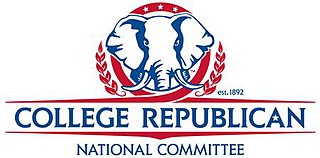
The College Republican National Committee (CRNC) is a national organization for college and university students who support the Republican Party of the United States. The organization is known as an active recruiting tool for the Republican Party and has produced many prominent Republican and conservative activists and introduced more party members to the Republican party than any other organization in the nation.
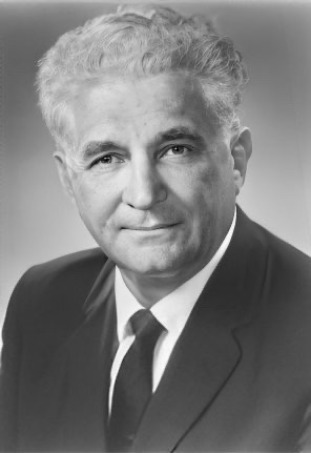
Frank John Lausche was an American Democratic politician from Ohio. He served as the 47th mayor of Cleveland and the 55th and 57th Governor of Ohio, and also served as a United States Senator from Ohio for two terms (1957–1969).

Stephen Marvin Young was an American politician from the U.S. state of Ohio. A member of the Democratic Party, he served as a United States Senator from Ohio from 1959 until 1971.

George Harrison Bender was a Republican politician from Ohio. He served in the United States House of Representatives from 1939 to 1949 and 1951 to 1954. He also served in the U.S. Senate from 1954 to 1957.

Henry B. Payne was an American politician from Ohio. Moving to Ohio from his native New York in 1833, he quickly established himself in law and business while becoming a local leader in Democratic politics. After serving in the Ohio Senate, Payne was elected to a single term in the United States House of Representatives in 1874. In the House, he worked unsuccessfully for a compromise in the debate over whether all of the nation's currency should be backed by gold. He was defeated for reelection, but served on the Electoral Commission that convened in early 1877 to resolve the dispute over the results of the 1876 presidential election. He ran for the Democratic presidential nomination in 1880, but lost to Winfield Scott Hancock, who would go on to lose the general election to James A. Garfield. He was elected to the United States Senate in 1884. His election by the Ohio legislature was tainted with charges of bribery, but after investigation by the Senate, Payne was permitted to keep his seat. In the Senate, he voted for moderate tariff reforms and against the Interstate Commerce Act of 1887, but was otherwise a reliable Democratic vote. He did not run for reelection, and died in 1896.
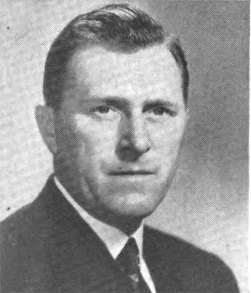
Charles Albert Vanik was a Democratic politician from Ohio. He served in the United States House of Representatives.

Samuel "Toothpick" Jones was an American Major League Baseball pitcher with the Cleveland Indians, Chicago Cubs, St. Louis Cardinals, San Francisco Giants, Detroit Tigers and the Baltimore Orioles between 1951 and 1964. He batted and threw right-handed.

Peter Humphries Clark was one of Ohio's most effective black abolitionist writers and speakers. He became the first teacher engaged by the Cincinnati black public schools in 1849, and the founder and principal of Ohio's first public high school for black students in 1866. Because of these accomplishments, he was named the nation's primary black public school educator. Clark is also remembered as the first African-American socialist in the United States, running for Congress in 1878 under the banner of the Socialist Labor Party of America.

John Quincy Adams II was an American lawyer, politician, and member of the Adams political family.

Weldy Wilberforce Walker, sometimes known as Welday Walker and W. W. Walker, was an American baseball player. In 1884, he became the third African American to play Major League Baseball.
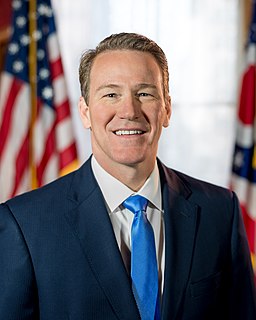
Jon A. Husted is the 66th and current lieutenant governor of Ohio, since 2019. He was previously the 53rd Ohio Secretary of State. A member of the Republican Party, he previously represented the 6th District of the Ohio Senate from 2009 to 2011 and was a member of the Ohio House of Representatives from 2001 to 2009. From 2005 to 2009, Husted served as Speaker of the Ohio House of Representatives and remains one of the youngest people to ever become Ohio House Speaker.

Charles Cleveland Convers was a Republican politician in the U.S. State of Ohio who was Speaker of the Ohio Senate for two years and a judge on the Ohio Supreme Court for a short time.
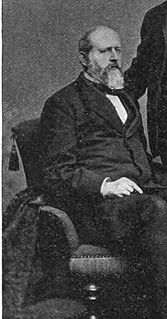
William Wartenbee Johnson was a Republican politician in the U.S. State of Ohio who was an Ohio Supreme Court Judge 1880–1886.
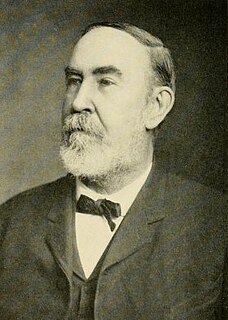
Henry Adams Thompson was an American prohibitionist and professor who was the vice-presidential nominee of the Prohibition Party in 1880.
Michael Wager is an attorney for Taft Stettinius & Hollister in Cleveland, Ohio, serving as the Chair of the firm's Business & Finance Group. Wager was the 2016 Democratic candidate for U.S. Congress in Ohio's 14th District; he also ran in 2014.

Francis Shunk Brown was an American lawyer from Pennsylvania who served one term as Pennsylvania state Attorney General from 1915 to 1919 and ran unsuccessfully in the Republican primary for Governor in 1930.
Eugenia "Jean" Marie Murrell Strode Capers was an American judge, educator, and politician.
References
- 1 2 3 "Three More Negroes May Win Congress Seats This November". Jet. Chicago. 1954-08-19. pp. 6–7. Retrieved 2014-07-04.
Aging Brown University graduate Francis Young, who worked 30 years in the post office and then began a political career, has the biggest task in stimulating Negroes to turn out in the polls.
- 1 2 "22 Negroes Win Primary Nominations". Jet. Chicago. 1954-05-20. pp. 3–4. Retrieved 2014-07-04.
Young, active in civic affairs, will face Charles A. Vanik, a white municipal court judge, who edged out John Holly, founder of the Negro Future Outlook League, in the Democratic primary.
| This article about an Ohio politician is a stub. You can help Wikipedia by expanding it. |
| This biographical article about a United States activist is a stub. You can help Wikipedia by expanding it. |